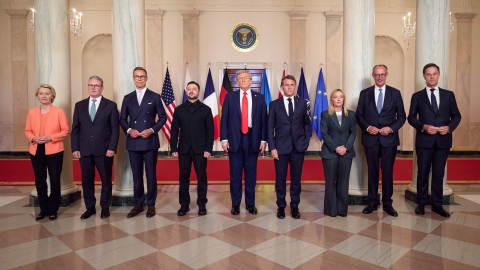New Energy Resources in East Africa: Pushing back the continent's last hydrocarbon frontier

Informations pratiques
Thématiques et régions
Centres et programmes liés
Ceci est un événement réservé.
En savoir plus sur nos programmes de soutienAs part as the Ifri Energy Breakfast Roundtable series, and in collaboration with the Africa Program at Ifri, a seminar with Benjamin Augé, Associate Fellow, Ifri, Roger M. Carvalho, Chief Executive Officer, Corporate Finance, SPTEC Advisory, and Yorick de Mombynes, Vice President Country Delegate Kenya, Tanzania, Total E&P, East Africa Division.
Chaired by Cécile Maisonneuve, Director of the Center for Energy, iIfri and Jacques Lesourne, President of the scientific Committee of the Center for Energy, Ifri.
Barely appearing on energy radars in recent years, East Africa has become one of the world"s hottest spot as far as oil and natural gas reserves are concerned: the last hydrocarbon frontier of the African continent is now being pushed back. The world"s oil and gas companies are pouring hundreds of millions of dollars into regional energy investments. This emerging trend is likely to have a significant impact on both the development path of these countries and the global oil and gas trade. The aggregate gas reserves of Mozambique and Tanzania potentially have the same size as Australia"s. Gas discoveries, which are particularly massive in Mozambique, are establishing the region as a key hub for supplying energy-hungry Asia. These countries will thus compete with the two main Liquefied Natural Gas suppliers (LNG), Qatar and Australia, to feed the Asian market, which accounts for two third of the global LNG demand and is growing fast. Nonetheless, the speed at which gas and oil will be made available to both local and world markets will depend on national contexts, the maturation of oil and gas regulations and the state of infrastructure - all parameters which differ from one country to another.
This conference will present an outlook on the state of oil and gas resources, projects, governance and prospects in East Africa and draw some conclusions as regards European and global markets.
Sujets liés
Autres événements

Quelle politique de défense en Allemagne ?
Face à la guerre en Ukraine et à l’instabilité géopolitique en Europe dans un cadre transatlantique perturbé, l’Allemagne a amorcé un tournant majeur dans sa politique de défense, avec une hausse significative des dépenses militaires, la modernisation de la Bundeswehr et le débat sur un éventuel retour du service militaire obligatoire.

Quatre ans de guerre en Ukraine : verra-t-on la fin du conflit en 2026 ?
Un déjeuner débat autour de Tatiana Kastouéva-Jean, Directrice du Centre Russie/NEI, et Élie Tenenbaum, directeur du

Quel partenariat technologique avec l’Inde ?
Le 16ème Sommet UE-Inde, qui s’est tenu le 27 janvier à New Delhi en présence des dirigeants européens António Costa, Ursula von der Leyen, et du Premier ministre Narendra Modi, marque un tournant dans le renforcement des liens entre l'Union européenne et l'Inde. Parallèlement, les visites bilatérales se multiplient, à l’image de celle du Président français qui s’est rendu en Inde mi-février pour participer au Sommet sur l’Intelligence Artificielle.









